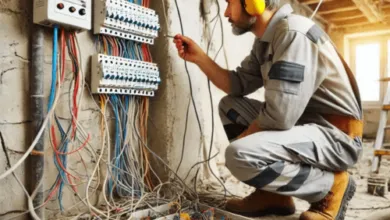How Does a Fence Company in Huntsville AL Ensure Long-Term Fence Stability on Clay Soils?

A fence might look solid above ground, but what keeps it standing strong often lies buried deep in the dirt—especially if that dirt is Alabama clay. Homeowners in Huntsville may not realize just how much this dense, moisture-sensitive soil challenges long-term fence stability. Behind every strong fence is a smart strategy designed for the quirks of local terrain, and Huntsville fence companies know the playbook well.
Deep-Set Posts Anchored for Clay Soil Stability in Huntsville
Fence builders near me often start with one vital principle: go deeper. Clay soil is notorious for its shrink-swell nature, meaning it expands with moisture and contracts during dry spells. This constant movement can shift shallow fence posts and cause leaning, warping, or even breakage over time. To prevent this, a fence company in Huntsville AL typically installs posts well below the frost line, often going as deep as 3 feet or more, depending on the fence type and soil compaction. These deeper settings give the fence a firmer grip, minimizing disruption from the unpredictable movements of clay.
Beyond just digging deeper, experienced fencing contractors near me use tools to assess the soil’s specific makeup before setting posts. Clay-rich soil doesn’t act the same from one lot to another. By customizing depth and spacing based on these conditions, Huntsville fence experts create a more stable structure that’s built to last. That means fewer repairs, straighter lines, and a fence that stands proud through Alabama’s wettest springs and driest summers.
Soil Conditioning Techniques Employed by Huntsville Fence Experts
Before a single post goes in, a smart fence company in Huntsville AL often addresses the soil itself. This step is easily overlooked, but it’s a game-changer. Soil conditioning involves blending gravel or sand into the clay-heavy areas around the fence line to improve drainage and reduce compaction. Clay naturally traps water, and when saturated, it expands aggressively. By changing the composition just enough, fence builders reduce this swelling behavior.
Huntsville fence contractors also use geo-fabric barriers or permeable liners in trench areas to prevent surrounding clay from encroaching into treated zones. This keeps the conditioned soil stable and prevents it from reverting back into the dense, movement-prone sludge that causes so many structural issues. These extra steps might not be visible once the fence is up—but they’re what separate a temporary fix from a long-lasting solution.
Strategic Post Spacing for Enhanced Clay Soil Durability
Post spacing isn’t just about aesthetics or matching panels. In clay soils, it plays a key role in structural integrity. Too far apart, and posts face more pressure from soil movement and wind; too close, and you’re overloading the system unnecessarily. Fencing contractors near me know how to calculate ideal spacing that balances support and flexibility—especially in zones with aggressive soil shifts like Huntsville.
Some fences benefit from staggered or alternate-depth posts. This technique disrupts the rhythm of soil expansion, reducing the domino effect where one unstable post pulls others down with it. It’s part engineering, part experience—and it shows in how these fences hold their shape for years.
Drainage Solutions Preventing Clay Soil Erosion Near Fences
You wouldn’t pour concrete on a sponge and expect it to stay dry. Clay soil works similarly—it absorbs and retains water like crazy. That’s why Huntsville fence companies often integrate customized drainage plans as part of the installation. French drains, gravel trenches, or downspout extensions can reroute water away from the fence line, preventing the soil from becoming waterlogged and unstable.
They also elevate the base of wooden posts slightly above grade, allowing rain to drain away naturally rather than pool around the base. Over time, even minor drainage improvements help prevent rot, rust, and erosion. A fence might seem like a simple line in your yard, but behind it is a whole system quietly protecting it from underground threats.
Foundation Sleeves Protecting Fence Posts from Clay Movement
Another clever technique involves foundation sleeves—protective barriers placed around fence posts before they’re installed into the ground. Think of them like armor. These sleeves reduce friction between the post and the surrounding clay, allowing the post to resist the tug and shift of expanding soil without snapping or leaning.
In Huntsville, where clay can grip posts like a vice, these sleeves create a sort of buffer zone. Fence company near me professionals often combine this with layered gravel at the base of each post hole, giving the post room to “breathe” while staying locked in place. It’s small innovations like this that extend fence life in a challenging soil environment.
Custom Post Treatments to Ensure Fence Longevity in Clay Conditions
Huntsville’s soil doesn’t just move—it holds onto moisture. And moisture is a silent killer for untreated wooden posts. Local fence builders near me combat this by using pressure-treated lumber soaked in water-resistant chemicals. Some even go further, sealing the posts in rubberized coatings or adding tar-based sealants around the underground portion.
But it’s not just wood that benefits. Metal and vinyl fences also get special treatments to withstand clay-related corrosion or movement. Fencing contractors near me understand which materials last longest in their local soil conditions and recommend the right match for your fence goals—whether that’s low-maintenance vinyl or weatherproofed metal. No one-size-fits-all approach here—just smart, custom solutions that truly work.




